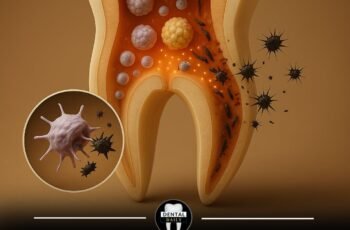
This study sheds light on something fascinating: your teeth are more biologically active than we often realize. Here’s a quick summary of the key takeaways:
🧠 Your Tooth Has an Immune System
- The dental pulp—the soft tissue inside your tooth—contains immune cells like dendritic cells, T cells, and macrophages.
- These cells detect and respond to threats like invading bacteria, much like immune responses in the rest of your body.
🦷 Your Tooth Fights Back
- When decay penetrates the enamel and dentin, odontoblasts (specialized cells in the pulp) release antimicrobial substances and activate immune defenses.
- If detected early, this system can fight off infection naturally, potentially avoiding more serious treatments.
⚠️ But There’s a Limit
- If bacteria overwhelm the pulp, it causes inflammation and pain, often resulting in the need for a root canal to remove the infected tissue.
✅ Why This Matters
- Early detection and good oral hygiene don’t just prevent decay—they support your tooth’s ability to heal itself.
- Regular dental visits are essential, not just for fixing problems, but for protecting your tooth’s natural defense system.
This research reinforces a powerful message: taking care of your teeth isn’t just about avoiding cavities—it’s about helping your body help itself.

